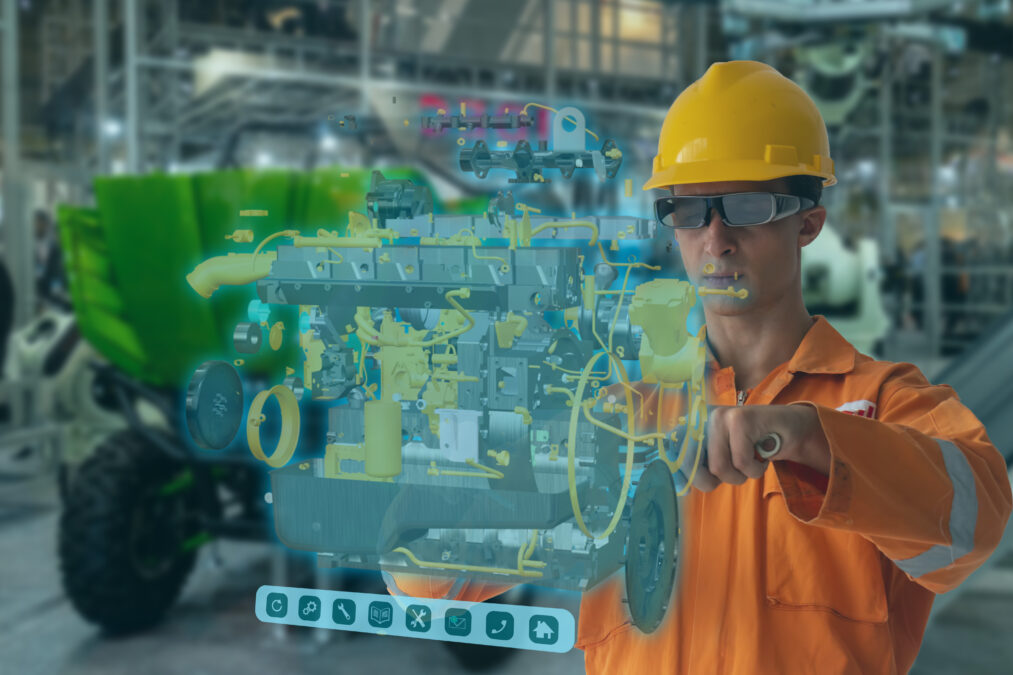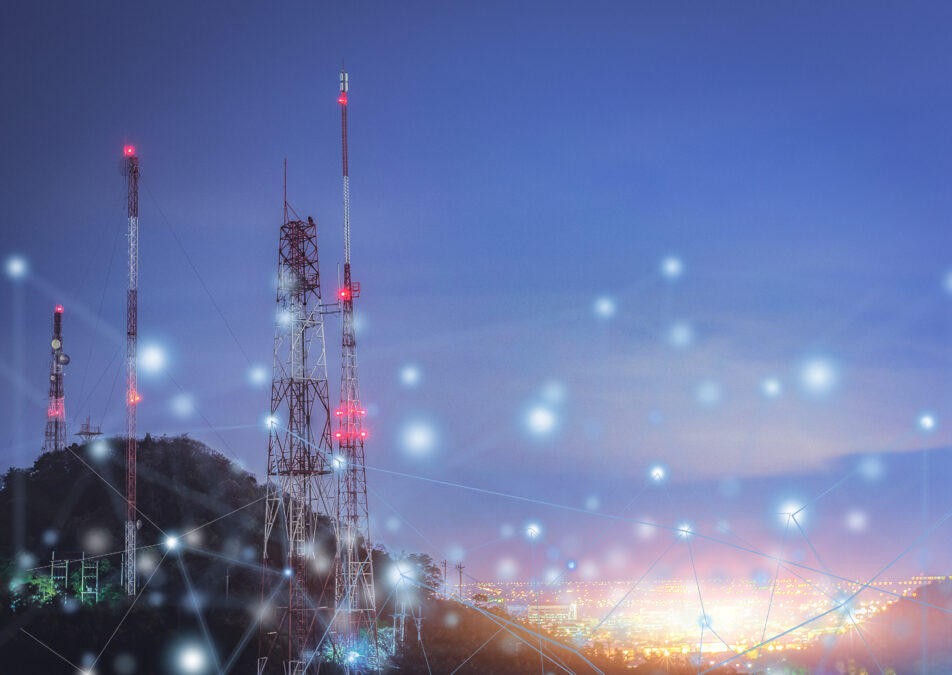5G technology disruption – four business sectors 5G will disrupt: financial services/insurance, cloud & edge computing, medical and healthcare, and supply chain management
Technology disruption — before we explain how 5G can disrupt certain business sectors, we should start with how you even define disruption.
One definition is that disruption is a “disturbance or problems which interrupt an event, activity, or process”. It might be the unruly kid at the back of the class who interrupts the flow of a lesson, or it might be a new infrastructure project, such as a road extension, which creates traffic jams during construction.
But there is a second definition: “radical change to an existing industry or market due to technological innovation.”
This is the definition that most technologists think of when disruption is mentioned, but it is surprising how rarely it is defined, and lack of definition can lead to misunderstanding.
Innovator’s dilemma
The late Harvard professor Clayton Christensen penned the definitive disruptive technology book, The Innovator’s Dilemma. Professor Christensen looked at how a new technology can transform a market, creating opportunities for new players and leaving established organisations struggling for relevance.
The Innovator’s Dilemma took as a case study the disc drive industry and how the dominant disc drive at any one time was determined by shifts in computer hardware from mainframes to mini-computers to desktops to laptops.
By the standards of Innovator’s Dilemma, 5G has disruption written all over it.
It will create incredible new opportunities but leave companies that fail to grasp these opportunities facing an almost impossible to realise catch-up challenge.
Which industries will 5G disrupt?
Adam Bujak, CEO and co-founder at KYP.ai, the process intelligence company, says: “5G will exponentially increase data storage and processing directly on the edge and in the cloud. That means that computation will happen directly in the source or for aggregated views in the cloud. The easier availability and faster access [with 5G] to the data will further boost AI development and training, leading to successful adoption.”
Yu-Han Chang, the technology analyst for IDTechEX, says that “5G, with its ultra-connectivity enabled by high data bandwidth, low latency, and high device density, will bring new applications in various sectors. This includes cloud investments for financial services, 5G+AI data intelligence for the insurance industry, autonomous driving enabled edge computing, telehealth solutions for medical; and full digital transformation in the industry, which will reshape current supply chain management.”
Let’s consider some specifics.
5G disruption of financial services/insurance
Online banking and online payments have advanced significantly without 5G. Many of us now make payments from our smartphones and check out our bank accounts while out.
Slow internet speeds partly caused by too many people accessing online data simultaneously has become a curious form of stress. Whereas previous generations might have stressed over a myriad of different things, like where their next meal was coming from, today, poor internet connectivity seems to be one of our biggest concerns — that’s the 2020s for you.
Although many banking apps can work perfectly well using 4G, they lose effectiveness when internet connectivity is pushed by too many people trying to use the network simultaneously. 5G, by offering speeds which can theoretically offer speeds which are 100 times faster, may offer an advantage which seems quite prosaic — they provide the service that people expect from 4G but often don’t get.
But the above benefit of 5G is hardly disruptive.
To imagine how 5G might be disruptive, consider how the internet and smartphones have disrupted financial services. We have seen new banking services from the likes of Monzo and Revolut disrupt the existing banking industry. 5G will create new opportunities for sophisticated real-time financial services, such as credit checks when buying big-ticket items.
5G may also create superior security and anti-fraud technologies.
For insurance, the opportunity created by data may be especially important, especially data related to mobile activities.
The opportunity for augmented and virtual reality may be where the true disruption lies — we may even see a new type of banking model emerge in which we see the best of two worlds — traditional branch banking and online. Immersive reality might offer the feel of branch banking, but virtually.
5G disruption and supply chain management
Oliver Chapman, CEO of supply chain specialist OCI, says: “5G will be an essential tool for real-time monitoring of the supply chain.”
OCI partners with organisations, enabling them to outsource many supply chain considerations, which it calls commercial process outsourcing or CPO.
Chapman said: “The supply chain has been catapulted onto the front pages, and if we have learned anything from the current crisis that is rocking the global economy, it is that a thorough understanding of the supply chain is critical. 5G can be applied to monitor the supply chain in-depth, not just companies that directly supply an organisation but their suppliers too — and indeed suppliers to suppliers.”
The disruption will come because companies that embrace 5G in auditing and enhancing their supply chain will be at a massive advantage. As a result, 5G will create radical change to an aspect of business that, in 2022, which we have all discovered is critical to the global economy.
5G disruption and cloud and edge computing
A superficial analysis might suggest that 5G will hand a victory to the cloud, reduce the need for local storage, and may even detract from the edge computing impetus.
In fact, edge computing may well emerge as a facilitator of 5G, especially 5G II operating at 100 MHz. Whilst this version of 5G offers extremely high bandwidth and low latency, it is limited by poor range, often as little as 300 metres. Edge computing devices can act as beacons extending the range. Indeed, edge computing is considered a vital technology for 6G — even faster than 5G but with an extremely low range.
The disruptive implications for the cloud and edge are simple. Cloud providers will need to ensure their servers have sufficient processing power to handle the opportunities created by 5G.
The disruption will come from the hardware — specialist computing devices, for example. The disruption may represent a particular opportunity for companies like Nvidia with its specialist chipsets.
5G disruption and medical equipment and healthcare
5G disruption in healthcare is likely to arise from data collected and medical monitoring of individuals when they are mobile.
Opportunities created by 5G relate to:
- Telemedicine
- Remote medicine
- Emergency care
- Data-intensive transmission such as high-resolution images
- Remote monitoring
- Data
The disruption will come from operators and equipment manufacturers opening up opportunities using 5G.
According to ResearchAndMarkets.com, the global telemedicine market is projected to be worth $144.2bn by 2030.
Companies like telemedicine company Teladoc, Amwell, with its proprietary software system for patients, and AI/healthcare signposting company Accolade are all examples of potential disruptors benefiting from 5G in healthcare and medical equipment.
5G disruption
Disruption does not occur instantly. At first, a new technology might seem remote and not especially relevant. But once that technology passes a tipping point, great gales of disruption can create incredible opportunity but wreak havoc among those who fail to prepare.
5G is a classic example of such a technology.
More on 5G and 6G
Information Age guide to how 5G will affect your business – What does 5G mean for your business? This Information Age guide to 5G looks at which sectors will be disrupted, what low latency means for those businesses, how 5G will be used by enterprise-level organisations and how it will propel AI
What does 5G mean for enterprise business? – A mobile 5G network promises to be the bridge towards Industry 2.0. But the reality is patchy coverage and a high cost of entry. What should an enterprise business CTO consider when throwing the switch on 5G?
5G and AI use cases – how 5G lifts artificial intelligence – 5G will unleash the potential of AI, says Michael Baxter. But how will AI and 5G most affect our everyday business lives? What are 5G and AI use cases?
Could low latency 5G boost your business? – Low latency 5G means faster input response times between machines on a mobile network, improving their performance – why is that a good thing and how could it help your business?










